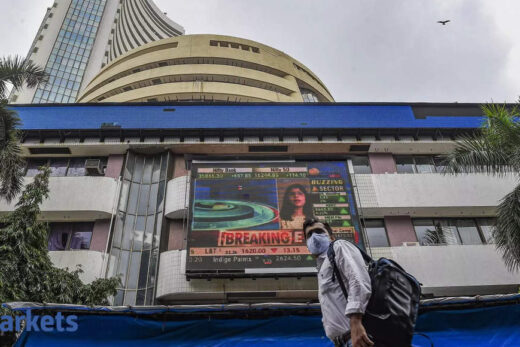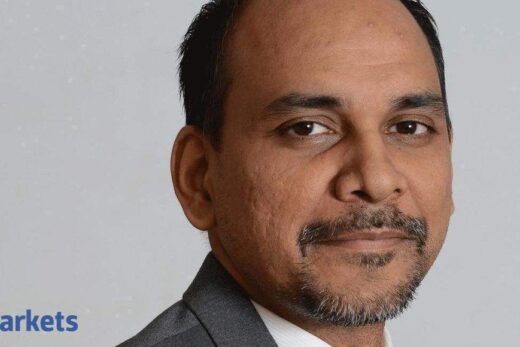The COVID second wave has now peaked. Are you seeing signs of a recovery in economic activity? What are the trends that you are observing on the ground and if at all there were to be a third wave do you think that is going to again halt business and the economic activity?
We saw the first time when COVID happened last year that a lot of people were skeptical, people were saying that it would take a very long time for the recovery to come back and there would be a major problem that people would face and so on so forth and we saw how quickly the economy re-bounced. I remember in one of your programmes I said the economic recovery will be a lot faster than what people were expecting and that is exactly what happened. Due to the second wave of COVID, we did see a little bit of a slowdown in April and May but now in June as you said things have plateaued out and number of cases have come down significantly from what the peak was and we are seeing day to day activities happening on a continuous basis in most parts of the country. I, for example, have been coming to the office every day since June or July of last year and I have been seeing that the traffic on the road is increasing every day and now the traffic that I get coming into the office is almost what it used to be in pre-COVID times so things are back to normal.
Gradually the economy is going to come back on track very very quickly. We are already seeing that in June and my sense is that with every passing month that momentum will only keep accelerating. The only risk that I see to the horizon is the third wave and its impact. Even if we were to look at the hotel sector, one would expect a significant effect of Covid in the particular sector. However, if you try to book a hotel today you would see that almost every hotel is running at full capacity particularly in hotels that are within proximity of the big cities. People are fed up of staying at home every day and therefore they are looking at some kind of an outlet to go out somewhere to spend a weekend in a good place. Hence, there is no doubt about the economy bouncing back. Unfortunately, the health crisis of the second wave was significant but the impact on the economy to my mind would be lesser in the second wave than the first.
Are you seeing any impact on collection trends when it comes to your business? Has demand for housing increased due to stay at home, work from home culture? Share with us some of the key customer trends that you have observed?
Let us look at two things separately, growth and collections. Obviously, in the short term, some impact may be there on collections it may not be a very significant impact. However, going forward what you must understand is that a housing loan is an extremely secure form of lending because the individual has taken a loan has mortgaged the very property where he stays and people will not want to do anything which would jeopardize the ownership of the property that is number one.
Secondly, in most of our loans, we are co-borrowers so it is both husband-wife jointly who have taken a loan. In the event, one of them has some difficulty with their job or salaries or whatever it is the other person can take on the mantle of servicing the loan.
Thirdly, most importantly our average loan to value ratio at the origination is extremely low and all our loans get repaid monthly installments which starts straight away and therefore the actual equity that the individual has in the property is so very high that there would be no chance that he would want to risk losing that property. There are laws in India where you can if there is significant default take possession of the property and auctions, not that one would do that in most cases, but the threat is always there.
So I do not see any long-term impact of the collection, it might be up 1% or 2% higher or lower in a short period of time but that is something one would have to accept.
On the growth side, COVID has actually been a little positive for the housing sector. In cities, we have this trend where there are six-seven people staying in a one-bedroom or a two-bedroom apartment which is 400-500 sq ft. If 1% in that family get struck with COVID then it spreads very quickly to the rest of the family because it is very difficult to do social distancing in a small space. COVID has made it more imperative for people to either look for bigger homes even if this means traveling a little more. Therefore, the demand for housing would probably get accentuated or increased because of COVID. But structurally housing in India has always had the potential to grow very strongly and we did see that towards the end after the first wave was over. Particularly in the month of March 2021 our disbursements were so much higher than what there have ever been in HDFC’s history. We disbursed more than 16,000 crores of individual housing loans during that period. Our previous highs have been less than 13,000 and we saw that trend with every passing month from June of 2020 that amount we were discussing was higher than what it was in the previous surge.
But do you see that because of the second wave lives and livelihoods have got impacted? There are some pockets where saving rates are low, job losses are high, could that start impacting HFC demand? There is a natural curve that was there in India because of the gap between housing and affordability but now do you see that changing?
At least for the salaried class I do not think the impact will be material at all simply by virtue of the fact that there had not been that many job losses. Even in the first wave when there was a complete shutdown in the entire country for more than a month, we did not see that many job losses, and in the second wave the number of job losses has been that much lesser. Yes unfortunately people have died in the families and that has obviously had an impact. But other than that affordability has only gotten better because interest rates are at an all-time low. I do not see the possibility of interest rates going lower any further, number one. Number two, developers today are in hurry to try and sell their properties so if someone was to go to a developer’s office and the developer is convinced that he is a genuine customer, he will always give him some kind of discount or a rebate to try and pursue him to sell the property. So there are various such things which make this probably one of the best times to look at the value in a property. I think structural demand for housing in India will always be strong because we have a young population. A lot of our population today has not even thought of buying a house but as they grow older, as the people reach their late 30s that is the time people look to buy a house and today we have more than two-thirds of our population that is below the age of 35.
What has been the impact of the second wave on commercial real estate? Do you see commercial real estate impact especially now that we are working from home could get impacted?
What we have observed is that our lease rental discounting portfolio which is about 7% to 8% of our total lending has generally been only for big, large office complexes and these office complexes are largely occupied by multi-national or very large companies. We have not seen any significant impact in terms of collection or in terms of properties being vacant. Yes if a property is vacant, some degree of properties might be vacant but very-very small part. And collection efficiency on the lease rental discounting portfolio has also been very good. But yes if someone has financed things like malls and public places, then there might be an impact but we, fortunately, have not done it.
Now you mentioned that you do not see the possibility of interest rates going any lower, the RBI has already given their stance of accommodative as long as necessary and we are seeing the rising inflation risk and globally as well the Fed is expected to hike interest rates sooner rather than later. What is your outlook as to when you see the Reserve Bank hiking rates?
First you have to understand one thing that we are all going by the assumption that there will be no third wave. If theoretically there is a third wave X the number of months down the line, then to my mind RBI is unlikely to look at raising rates because it is very critical for the economy to get back to normal times and therefore RBI will like to keep interest rates as low as possible.
Inflation in India would largely stem out of imported inflation because oil prices have gone higher. If on one side we say that the growth has got impacted because of COVID, then it is all the more imperative to keep interest rates low. So at least in the envisagable six months or so I do not see interest rate hikes in India.
The financial industry is set to change as well, we are seeing a rise in technology adoption, the number of different tech players as PSU bank consolidation as well that is underway, a lot of large NBFCs seem to be becoming rather aggressive. Amidst this scenario how are you looking at the housing finance industry evolving over the next three to five years?
People have become more digitally savvy in the times of Covid. If someone is looking for a car loan or a consumer loan it is very easy to do it online, it is very easy to do it through one of these players but what you need to understand is that housing loan is a little different because it is a loan taken for a property where the individual is going to go and occupy, he is going to go and stay. He wants to be 100% sure that the property he is buying is right, the developer is good, he will complete the project, the titles are in place, the construction is of certain quality etc. And for that, a lot of people have faith in HDFC’s ability to do due diligence on the developer to make sure that these parameters are met. So I think for a housing loan people will still not want to do a transaction off the internet, they would much rather come, look, come to you, talk to you, understand the finesses, understand more details about the property and buy. So I do not see any major disruption in the housing finance sector. You could however see that in other consumer products where a customer is only looking for a loan as quickly as possible. In a housing loan speed is not as critical as being sure that the property is right and that the construction is as per planning and so and so forth.



